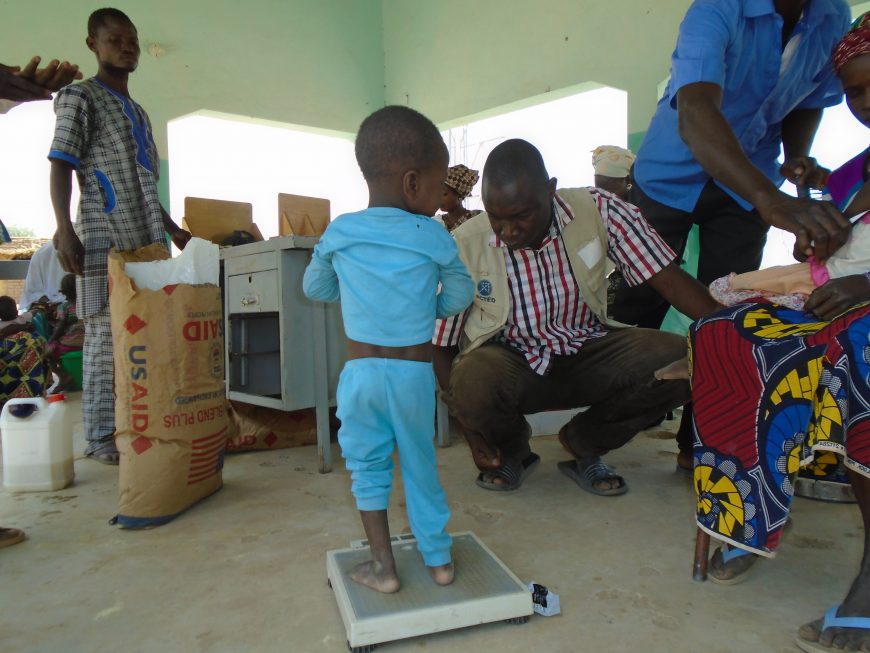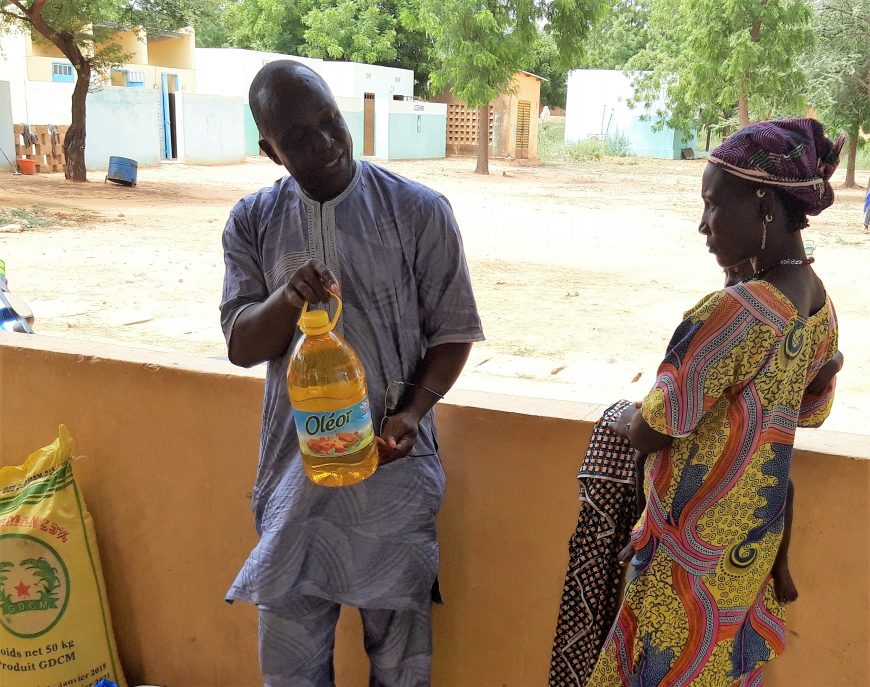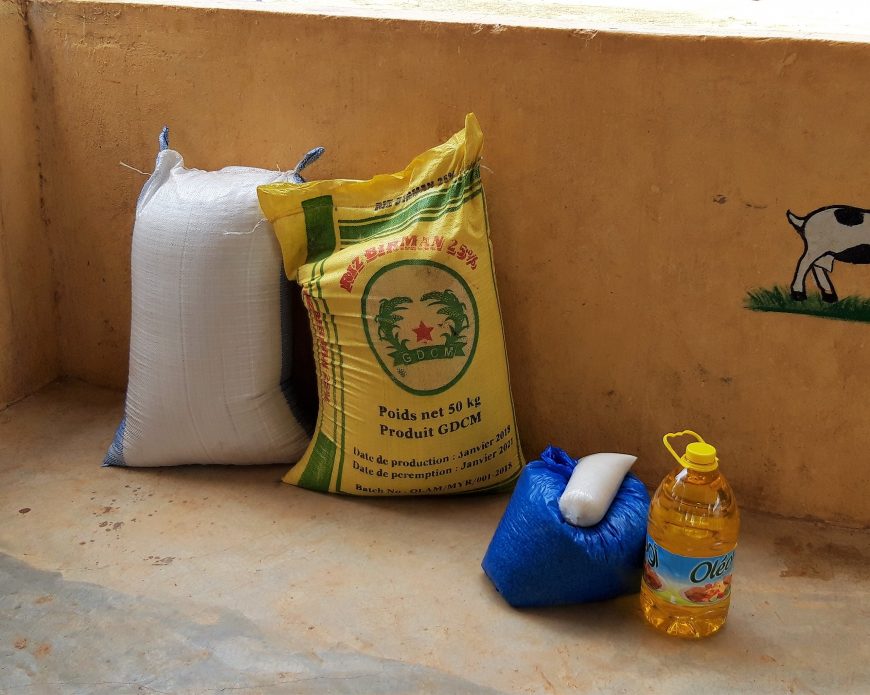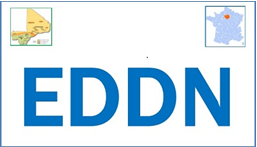Thanks to the support of the Douentza Circle Council in central Mali and the Essonne Departmental Council (EDDN Network), ACTED Mali has treated more than 142 malnourished or severely acutely malnourished children.
Welding, a high-risk period in Douentza
In Mali, the lean season (June-August) corresponds to the period when harvests are exhausted, and where people are particularly vulnerable to food insecurity. In the central region of Mopti, the early lean period in 2018 has dramatically increased the number of children suffering from severe acute malnutrition (SAM). In this region, ACTED has chosen to act in the Douentza Circle, with the support of UNICEF, to prevent malnutrition and care for affected children.

A care in a health center does not necessarily mean healing
The risks of malnutrition are high for children, even when they are cared for. Sometimes, mothers and caregivers remove children from treatment and return with them to their villages in order to focus on other activities, like farming. Even when treatment is completed, a lack of nutrition awareness and resources increases the risk that the child will relapse into malnutrition.

Distributing food kits to prevent relapses
In order to prevent the abandonment of treatment as well as the risk of relapse, ACTED, in partnership with the Essonne County Council and the Douentza Cercle Council, distributed food kits to the parents and caregivers of the treated children. Developed in connection with the recommendations of the World Food Program (WFP), each kit includes:
- rice (1 bag of 50kg)
- millet (1 bag of 50 kg)
- cowpea (1 bag of 10kg)
- oil (1 can of 5 litres)
- and salt (1 kg)
Food kits ensure a minimum nutritional intake for a family of 6 for a month. These kits were distributed to the families of children suffering from complications due to malnutrition, and treated by the teams of the URENI (Intensive Nutrition Recovery and Education Unit) of Douentza.
142 CHILDREN AND THEIR FAMILIES ACCOMPANIED TO HEALING

Mothers of children suffering from malnutrition testify to the vital importance of food aid
Fady, Aminata, Sali, Nematou, Rokiatou, mothers of children admitted for severe acute malnutrition at URENI in Douentza, each received a food kit. Without this kit, they would not have been able to feed their families. Sali said that in 2018 the harvests were particularly inadequate. At that time, food was scarce and expensive. His family has completely consumed the food distributed.
“Before receiving the kit, the nurses gave me a lot of nutritional advice to prevent malnutrition,” says Rokiatou.
The project helped to improve child nutrition in the Sanitary District. It encouraged parents to bring their malnourished children to receive treatment. However, needs are still important in the area and the outlook for 2019 is worrisome.
Improving child nutrition
Doctors in the region have supported this project, including Doctor Seydou Maiga, nutrition focal point in Douentza. Dr Maiga notes a real impact on the dropout rate since the beginning of the project. Dr Seydou Kanté, Chief Medical Officer of Douentza also supports the initiative but nevertheless emphasizes a risk of overcrowding at URENI. The centre struggles to cope with rising admissions.
In 2019, ACTED will strengthen its advocacy to renew support for health services, for the screening and management of malnutrition.

